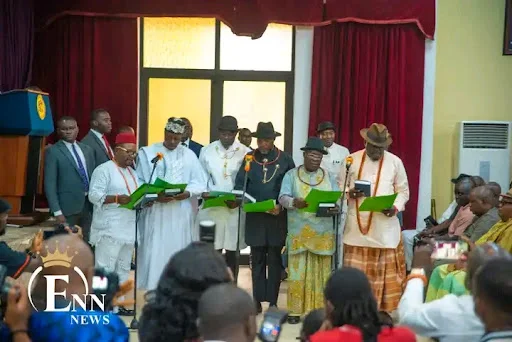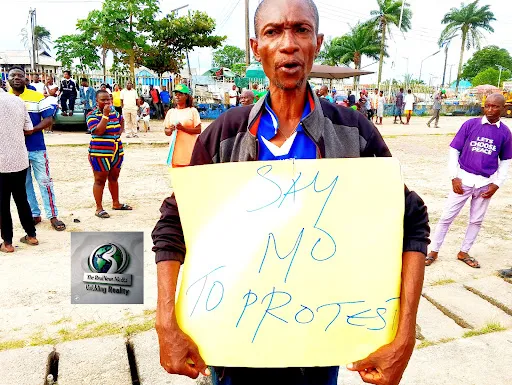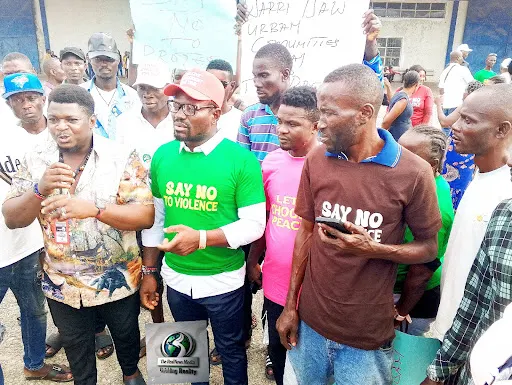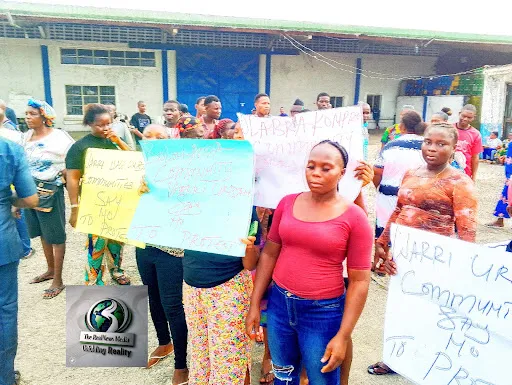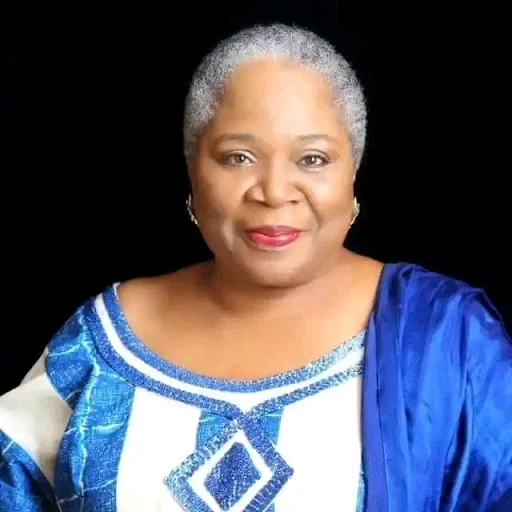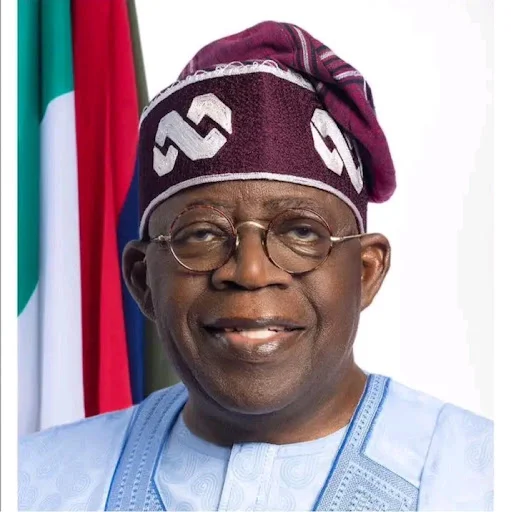Featured Article: The Consequences of Removing Fuel Subsidy for Nigeria's Vulnerable Populations- By Ekpegha T.
Removing subsidies in Nigeria could have significant consequences for the country's vulnerable populations. In a nation where economic stability is often a fragile promise, the recent discussions surrounding the removal of subsidies in Nigeria bring forth a wave of uncertainty that could ripple through the lives of millions. Subsidies have traditionally served as a lifeline for the country’s vulnerable populations, offering essential support to those struggling with the high costs of living, healthcare, and education. As the government contemplates this significant policy shift, it becomes crucial to understand the potential consequences that could ensue. This article delves into multifaceted impacts of subsidy removal, exploring how it might exacerbate poverty, deepen social inequalities, and challenge the resilience of communities already grappling with economic hardship. By examining the broader implications of this decision, we aim to shed light on the urgent need for sustainable solutions that prioritize the welfare of Nigeria’s most vulnerable citizens amidst an ever-changing economic landscape.
Understanding the Context of Subsidies in Nigeria.
In recent years, Nigeria has grappled with a complex web of economic challenges, exacerbated by fluctuating oil prices, inflation, and the lingering effects of the COVID-19 pandemic. Central to this narrative is the role of government subsidies, which have historically served as a lifeline for the country’s vulnerable populations. These subsidies, aimed primarily at stabilizing prices for essential goods such as food and fuel, have provided much-needed relief to millions of Nigerians, particularly those living below the poverty line. However, as the government faces mounting fiscal pressures and seeks to recalibrate its economic policies, the potential removal of these subsidies raises urgent questions about the implications for the country’s most disadvantaged citizens.
Understanding the context of subsidies in Nigeria requires a closer look at the socio-economic landscape. With over 80 million people living in extreme poverty, the stakes are high. For many families, subsidies have been a buffer against the harsh realities of inflation and economic instability, making basic necessities more accessible. Yet, this reliance on subsidies has sparked a heated debate about sustainability and efficiency. Critics argue that such financial support can lead to dependency and misallocation of resources, while proponents assert that immediate relief is essential for survival in a country where unemployment and underemployment rates are alarmingly high.
As discussions surrounding subsidy removal gain momentum, it is crucial to consider the multifaceted consequences that may arise from this decision. Will the elimination of subsidies lead to a more resilient economy, or will it deepen the struggles of Nigeria’s most vulnerable populations.
This article delves into the potential impacts of removing subsidies, exploring the delicate balance between economic reform and social responsibility in a nation at a crossroads. By examining various perspectives and potential strategies, we aim to shed light on the complexities of navigating uncertainty in Nigeria’s economic landscape.
The Role of Subsidies in Supporting Vulnerable Populations.
Subsidies play a crucial role in safeguarding the livelihoods of Nigeria's vulnerable populations, acting as a lifeline for millions who struggle to meet their basic needs. These financial aids, provided by the government, are designed to lower the cost of essential goods and services, ensuring that the most disadvantaged members of society do not fall deeper into poverty. From food staples to healthcare and education, subsidies help to bridge the gap between rising costs and dwindling incomes.
For many families, subsidies are not just a financial cushion; they are a means of survival. In the face of economic instability and fluctuating market prices, these supports enable households to access necessities such as rice, maize, and cooking oil at affordable rates. Without these subsidies, the poorest segments of the population could find themselves unable to afford even the most basic food items, leading to increased malnutrition and health issues.
Additionally, subsidies can enhance access to vital services like healthcare and education. For instance, health subsidies can alleviate the burden of medical expenses, allowing families to seek necessary treatments without the fear of financial ruin. Similarly, educational subsidies can enable children from low-income households to attend school, fostering a more educated workforce and breaking the cycle of poverty.
However, the impact of removing these subsidies could be catastrophic. As prices soar and access to essential goods diminishes, the already vulnerable populations may face dire consequences exacerbating socioeconomic inequalities and leading to increased rates of poverty and social unrest. Understanding the critical role that subsidies play in supporting these populations is essential for policymakers as they navigate the complex landscape of economic reform and social welfare in Nigeria.
Overview of Current Subsidy Programs in Nigeria.
Nigeria’s subsidy programs have long served as a critical lifeline for its vulnerable populations, providing essential support in an economy characterized by volatility and uncertainty. The most notable of these programs include fuel subsidies, food subsidies, and social welfare initiatives aimed at alleviating poverty.
Fuel subsidies, in particular, have been a cornerstone of Nigeria's economic policy, designed to keep transportation costs manageable for the average citizen. By capping fuel prices, the government has aimed to cushion the impact of global oil price fluctuations, enabling many Nigerians to afford daily commutes and the transportation of goods. However, this program has come under scrutiny for its significant fiscal burden on the government and its potential to encourage overconsumption and inefficiencies in the energy sector.
Food subsidies also play a crucial role in ensuring that vulnerable populations have access to basic nutrition. These programs aim to stabilize food prices and make essential commodities more affordable for low-income households. Initiatives like the National Home Grown School Feeding Programme not only provide children with nutritious meals but also stimulate local agriculture, creating a ripple effect that can enhance food security across the nation.
In addition to fuel and food subsidies, Nigeria has implemented various social welfare programs designed to support the poorest segments of the population. Programs such as the Conditional Cash Transfer (CCT) scheme provide direct financial assistance to low-income families, helping them meet their basic needs and invest in their children’s education and health. These initiatives are critical for breaking the cycle of poverty and fostering long-term economic stability.
However, despite the importance of these subsidy programs, there are ongoing debates about their sustainability and effectiveness. Critics argue that the funds allocated to subsidies could be better spent on infrastructure and public services that would benefit a larger segment of the population. As Nigeria navigates its economic challenges, understanding the intricate web of its subsidy programs is essential in assessing the potential consequences of their removal, especially for the country's most vulnerable citizens.
The Rationale Behind Removing Subsidies: Economic Perspectives
The decision to remove subsidies in Nigeria has sparked a heated debate among economists, policymakers, and the general public, all grappling with the potential repercussions on the nation’s vulnerable populations. From an economic standpoint, the rationale for this move is often anchored in the desire for fiscal sustainability and market efficiency. Subsidies, while providing immediate relief to the poor, can also create significant distortions in the economy. They often lead to inefficiencies in resource allocation, encouraging overconsumption of subsidized goods and services, which can strain government budgets and divert funds from essential services like education and healthcare.
Proponents of subsidy removal argue that it could lead to a more competitive market environment, where prices reflect true supply and demand dynamics, ultimately fostering innovation and improving the quality of goods and services. By eliminating these financial supports, the government could redirect resources toward more sustainable development initiatives, such as infrastructure improvements or social welfare programs that directly target those in need.
However, this economic perspective comes with its own set of challenges. The immediate fallout from subsidy removal often includes rising prices for basic necessities such as food and fuel which disproportionately affect low income households. The potential for increased poverty and social unrest raises critical questions about the timing and implementation of such measures. Policymakers must weigh these economic benefits against the social costs, carefully considering the design of safety nets and transitional support that could cushion the blow for Nigeria’s most vulnerable citizens as the country navigates these uncertain waters. Ultimately, the implications of subsidy removal extend far beyond mere economics; they touch on the very fabric of social equity and stability within the nation.
Immediate Consequences of Subsidy Removal for Low-Income Families.
The removal of subsidies in Nigeria has far-reaching implications, particularly for low-income families who already navigate the precarious landscape of financial insecurity. As these subsidies vanish, the immediate consequences can be stark and overwhelming.
For many households, subsidies provided a crucial buffer against the rising costs of essential goods, such as food, fuel, and healthcare. Without this financial support, families are likely to experience an abrupt increase in their daily expenses. Staple food items, which are already subjected to inflationary pressures, could see prices skyrocket, pushing basic nutrition out of reach for many. This could lead not only to increased hunger but also to a deterioration in health, particularly among vulnerable groups like children and the elderly.
Moreover, the transportation sector is usually one of the first to feel the impact of subsidy removal. With fuel prices on the rise, the cost of commuting increases, placing an additional burden on low-income families whose livelihoods often depend on daily travel to work or school. This can exacerbate existing inequities, as families may be forced to cut back on essential travel, limiting job opportunities and educational access.
The psychological toll cannot be overlooked either. The uncertainty surrounding financial stability can lead to increased stress and anxiety among low-income populations. Families may find themselves facing tough decisions daily, such as whether to pay for healthcare, education, or food. This kind of chronic stress can have lasting effects on mental health, further complicating the struggle for economic stability.
In essence, the immediate consequences of subsidy removal for Nigeria's low-income families are not merely economic; they ripple through every aspect of their lives, threatening to deepen the cycle of poverty and vulnerability. Addressing these challenges will require comprehensive policy responses that prioritize the needs of the most affected populations and seek to restore some level of support in a time of widespread uncertainty.
Impact on Food Security and Nutrition.
The removal of subsidies in Nigeria carries significant implications for food security and nutrition, particularly for the country's most vulnerable populations. Subsidies have historically played a crucial role in stabilizing food prices and ensuring that essential commodities remain accessible to low-income households. Without these financial supports, the cost of basic food items is likely to rise sharply, putting immense pressure on families already grappling with economic challenges.
As prices climb, many households may be forced to make difficult choices, often opting for cheaper, less nutritious food options to stretch their limited budgets. This shift can lead to a decline in overall nutritional quality, increasing the risk of malnutrition and diet-related health issues. Vulnerable groups, such as children, pregnant women, and the elderly, are particularly at risk, as their nutritional needs are critical for growth, development, and overall health.
Moreover, the agricultural sector, which employs a significant portion of the population, may also suffer. With decreased demand for locally produced foods due to higher prices, farmers could face reduced income, further exacerbating food insecurity. The ripple effects of this can extend to rural communities, where agriculture is often the backbone of the economy. As farmers struggle to sell their products and invest in their livelihoods, the cycle of poverty and food insecurity can become increasingly entrenched.
In this scenario, the consequences of subsidy removal extend far beyond immediate economic strain. They threaten to undermine years of progress toward achieving food security and improving nutrition across Nigeria. It is crucial for policymakers to consider these ramifications and explore alternative strategies that can safeguard the well-being of vulnerable populations while addressing the broader economic challenges facing the nation.
Effects on Education and Healthcare Access
The removal of subsidies in Nigeria is poised to have significant repercussions on the education and healthcare access of its most vulnerable populations. For many families, subsidies have provided a critical financial cushion that allows them to allocate resources towards essential services such as schooling and medical care. Without this financial support, families may find themselves facing tough choices: should they prioritize their children's education or seek necessary medical treatment?
In the realm of education, the withdrawal of subsidies could lead to increased dropout rates among children from low-income households. With rising costs of schooling—such as tuition fees, uniforms, and learning materials—families may struggle to keep their children in school, opting instead to have them contribute to household income or take up informal jobs. This not only jeopardizes the future of these children but also exacerbates the cycle of poverty, as education is a critical pathway to upward mobility.
Similarly, healthcare access is likely to decline as subsidies that once alleviated the burden of medical expenses are removed. Vulnerable populations may delay seeking medical care due to costs, leading to untreated health issues that could escalate into more serious problems. The implications are dire: a decline in overall health can diminish workforce productivity, increase mortality rates, and strain public health systems already stretched thin.
Moreover, the strain on educational and healthcare systems can create a ripple effect throughout communities. With fewer children attending school and a growing number of individuals unable to access healthcare services, the social fabric of society may weaken, ultimately impacting economic growth and stability. In navigating this uncertain landscape, it is crucial to consider the broader consequences of subsidy removal, particularly how it affects the most vulnerable citizens and their ability to build a better future for themselves and their families.
The Ripple Effect on Local Economies and Employment.
The removal of subsidies in Nigeria doesn’t just impact individual households; it sends ripples through local economies and affects employment across various sectors. Subsidies have long served as a safety net for vulnerable populations, enabling them to access essential goods and services at affordable prices. When these financial aids are stripped away, the immediate consequence is often a sharp increase in the cost of living. Basic commodities like food, fuel, and transportation become more expensive, leading to reduced purchasing power for consumers.
As families tighten their budgets, local businesses that rely on consumer spending begin to feel the strain. Small vendors, market traders, and service providers may witness a decline in sales as customers prioritize essential over discretionary spending. This downturn can force businesses to cut costs, resulting in layoffs or reduced working hours for employees. The unemployment rate may rise, further exacerbating the financial struggles of households and diminishing the overall economic vitality of communities.
Moreover, the cascading effects can lead to a cycle of poverty that is difficult to break. With reduced incomes, families may pull children out of school to save on expenses or divert funds that would have gone to healthcare. This not only impacts individual lives but also undermines the long-term development potential of the workforce, as education and health are critical components for sustainable economic growth.
In an already fragile economic landscape, the removal of subsidies can erode consumer confidence, leading to a reluctance to invest in local businesses. As uncertainty grows, entrepreneurs may hesitate to expand operations or launch new ventures, stifling innovation and job creation. Ultimately, the ripple effect of subsidy removal extends far beyond immediate fiscal challenges, posing a significant threat to the resilience and recovery of Nigeria's local economies. Addressing these consequences requires a multifaceted approach that prioritizes support for the most affected and fosters a sustainable path forward for all.
Countries that Removed Subsidies and Their Outcomes.
In examining the complex landscape of subsidy removal, it is crucial to look at real-world examples that can illuminate the potential consequences for Nigeria's vulnerable populations. Several countries have gone through similar transitions, revealing both the risks and opportunities that come with such significant economic shifts.
One notable case is **Egypt**, which undertook a series of subsidy reforms starting in 2014. Facing a burgeoning fiscal deficit, the Egyptian government eliminated fuel subsidies, a move that initially triggered widespread protests and unrest. While the government aimed to redirect those funds towards social programs, the immediate aftermath saw a spike in fuel prices, leading to increased transportation costs and a ripple effect on the prices of essential goods. However, over time, these reforms contributed to stabilizing the economy and fostering a more robust social safety net. The lesson here is clear: while removal can be distressing in the short term, strategic reinvestment in social programs can yield positive long-term outcomes.
In contrast, **Indonesia's experience** with subsidy removal offers a different perspective. In 2005, the government cut fuel subsidies to alleviate the financial burden on the national budget. This decision met with significant backlash, as the cost of living surged and inflation soared. However, the government utilized these savings to expand cash transfer programs aimed at the poorest citizens. While the transition was rocky, the eventual implementation of comprehensive social assistance programs helped cushion the blow for the most vulnerable, demonstrating the importance of coupling subsidy removal with targeted support.
Similarly, **Nigeria's past experience with subsidy removal** provides essential insights. In 2012, the government attempted to eliminate fuel subsidies, resulting in nationwide protests known as the "Occupy Nigeria" movement. The immediate consequences were felt across the economy, leading to increased transportation costs and food prices. However, in the aftermath, the government promised to invest in infrastructure and social services to mitigate the impact on low-income households. The mixed outcomes highlighted the need for a well-thought-out plan that prioritizes the welfare of the most affected populations.
These case studies underscore a critical takeaway: removing subsidies is not merely an economic maneuver; it is a social contract that requires careful consideration of the implications for vulnerable groups. As Nigeria contemplates similar reforms, the experiences of these countries serve as a cautionary tale and a guide, emphasizing the importance of robust social safety nets, transparent communication with citizens, and strategic reinvestment to safeguard the most vulnerable amidst the turbulence of economic change.
The removal of subsidies in Nigeria has sparked a wave of public response that reflects the deep-seated concerns of vulnerable populations across the country. As citizens grapple with the immediate economic implications of these policy changes, civil society organizations have stepped into the breach, playing a crucial role in advocating for the rights and welfare of those most affected.
Public outcry has been palpable, with protests erupting in various regions, highlighting the frustration and anxiety felt by millions who rely on subsidies for basic necessities like food, transportation, and healthcare. Social media platforms have become hotbeds for discussions, where voices from all walks of life share their experiences and fears, amplifying the collective demand for government accountability and transparency. These grassroots movements are not just about expressing discontent; they aim to push for alternative solutions that will alleviate the burden on the most vulnerable.
Civil society organizations, equipped with the tools of advocacy and community engagement, have been pivotal in channeling this public sentiment into meaningful action. They are conducting research to understand the broader ramifications of subsidy removal, providing critical data that informs policymakers and engages the public in dialogue. Workshops and community meetings are being organized to educate citizens about their rights and available resources, ensuring that those impacted are not left voiceless.
Moreover, these organizations are actively lobbying for the implementation of social safety nets that can cushion the blow of subsidy removal. They are working with governmental and non-governmental stakeholders to design programs tailored to support those hit hardest by the economic shifts. By bridging the gap between the government and the populace, civil society plays an indispensable role in fostering a more equitable response to the challenges posed by subsidy removal.
To direct this uncertainty, the public response, bolstered by the efforts of civil society, underscores a crucial truth: when communities come together and advocate for their needs, they can shape policies that prioritize human dignity and resilience. The path forward may be fraught with challenges, but the active engagement of citizens and organizations provides a beacon of hope for Nigeria’s vulnerable populations.
The removal of subsidies can have far-reaching consequences, particularly for Nigeria's most vulnerable populations. However, policymakers have the opportunity to explore a variety of alternatives that can mitigate these impacts and promote social equity. One key approach is the introduction of targeted cash transfer programs. By providing direct financial assistance to low-income households, the government can help cushion the blow of rising prices and ensure that basic needs are still met.
Additionally, investing in social safety nets is crucial. This might include food assistance programs, healthcare subsidies, and educational grants that specifically aim to support those who are most affected by subsidy removal. By creating a comprehensive social protection framework, the government can provide a buffer against economic shocks and help maintain the well-being of vulnerable groups.
Moreover, fostering partnerships with non-governmental organizations (NGOs) and community-based organizations can amplify the reach and effectiveness of these alternatives. These entities often have established relationships within local communities and can deliver assistance where it is needed most, ensuring that help reaches those who might otherwise fall through the cracks.
Finally, promoting economic diversification and skill development within vulnerable communities can empower individuals and families to become more resilient in the face of economic changes. By investing in education and vocational training, the government can help create new opportunities for livelihood, reducing dependency on subsidies in the long term.
In summary, while the removal of subsidies poses significant challenges, exploring policy alternatives such as targeted cash transfers, enhanced social safety nets, strategic partnerships, and skill development initiatives can pave the way for a more equitable and sustainable future for Nigeria's vulnerable populations.
The Importance of Inclusive Economic Policies
Inclusive economic policies are paramount in fostering a resilient and equitable growth trajectory, especially for Nigeria's vulnerable populations. As the nation grapples with the potential removal of subsidies, it becomes increasingly crucial to implement policies that not only stimulate economic growth but also ensure that the benefits are shared broadly across society.
In a country where a significant portion of the population depends on these subsidies for basic necessities such as food, transportation, and healthcare, the absence of a safety net can lead to dire consequences. Inclusive policies aim to bridge the gap between the rich and the poor, creating opportunities for marginalized groups to participate in the economy. This includes targeted investments in education, vocational training, and microfinance initiatives that empower individuals to develop skills, start businesses, and ultimately contribute to economic productivity.
Furthermore, these policies should be designed with input from the communities they aim to serve. By actively involving local stakeholders in the policy-making process, governments can identify specific needs and tailor their approaches to address the unique challenges faced by vulnerable populations. This participatory approach not only enhances the effectiveness of policies but also fosters a sense of ownership and accountability among community members.
Additionally, inclusive economic policies can stimulate innovation and entrepreneurship by creating an environment where diverse voices and ideas are valued. When individuals from all walks of life have the opportunity to thrive, the economy as a whole benefits from increased creativity and dynamism.
In contrast, neglecting the importance of inclusivity can exacerbate existing inequalities, leading to social unrest and diminishing trust in governmental institutions. As Nigeria navigates the uncertain waters of subsidy removal, prioritizing inclusive economic policies will be essential to safeguarding the welfare of its most vulnerable citizens and ensuring sustainable, long-term growth for the nation as a whole.
Long-term Consequences for National Development.
The removal of subsidies in Nigeria, particularly those aimed at supporting vulnerable populations, could usher in a cascade of long-term consequences that significantly impede national development. As the government seeks to redirect financial resources, the immediate and most visible impact will be felt by the very citizens who rely on these subsidies to meet their basic needs. Without this safety net, millions may be pushed further into poverty, leading to increased food insecurity, malnutrition, and a decline in overall health outcomes. In a nation where a significant portion of the population already grapples with these challenges, the repercussions could be dire.
Moreover, the ripple effects extend beyond individual households. An increase in poverty rates can lead to heightened social unrest as citizens express dissatisfaction with their living conditions. This unrest can destabilize local economies and disrupt community cohesion, creating an environment that is less conducive to investment and development. Investors are often wary of political instability, which can deter foreign direct investment and hinder economic growth.
Education is another critical area likely to be affected. Families struggling to make ends meet may prioritize immediate survival over long-term investments in their children's education. As school attendance drops and educational outcomes decline, the workforce of the future may face significant skill gaps, making it even more difficult for Nigeria to compete in an increasingly globalized economy.
Additionally, the reduction or elimination of subsidies may shift the burden of social welfare onto local governments and non-governmental organizations, increasing their operational challenges and potentially leading to a fragmented approach to social support. This can result in uneven access to essential services and resources across different regions, exacerbating existing inequalities and stalling national progress.
In the long term, the consequences of removing subsidies may create a cycle of poverty that is difficult to break. The lack of a solid safety net can stifle entrepreneurship and innovation, as individuals in vulnerable populations may lack the financial security to take risks or invest in new opportunities. For a nation striving for economic resilience and growth, the ramifications of such a policy decision could be profound, undermining efforts to foster a more equitable and prosperous society for all Nigerians. Ultimately, careful consideration and strategic planning are essential to navigate this complex landscape and mitigate the adverse effects on national development.
The removal of subsidies has the potential to exacerbate existing inequalities, pushing struggling families deeper into poverty while attempting to stabilize the economy. The impact is particularly harsh on low-income households, who often spend a larger percentage of their income on essential goods and services, such as food and transportation. As prices soar in the wake of subsidy cuts, the risk of increased malnutrition, reduced access to healthcare, and heightened social unrest becomes alarmingly tangible.
To plan this uncertainty, it is crucial for policymakers to strike a delicate balance. Economic reforms should be implemented with a comprehensive safety net for those who are most affected. This could include targeted cash transfers, food assistance programs, and investments in public services that directly benefit vulnerable communities. By fostering a dialogue between governmental bodies, civil society, and the private sector, Nigeria can create a more inclusive economic framework that acknowledges the needs of its most disadvantaged citizens.
Ultimately, sustainable economic growth must be pursued hand-in-hand with a commitment to social welfare. The challenge lies in crafting policies that not only aim for monetary stability but also uphold the dignity and well-being of all Nigerians. Only by prioritizing both economic reform and social responsibility can the nation hope to emerge from this period of uncertainty with resilience and equity for all its people.
Call to Action: Engaging Stakeholders for Sustainable Solutions
In the face of shifting economic landscapes and the removal of subsidies, it is imperative to mobilize a collective effort towards sustainable solutions that safeguard Nigeria’s vulnerable populations. The consequences of subsidy removal are multifaceted, impacting not just the immediate financial stability of low-income families but also the broader social fabric of the nation. Thus, a call to action is essential for engaging all relevant stakeholders—government bodies, NGOs, community leaders, and private sector players—to collaborate on strategic initiatives.
First and foremost, we must advocate for open dialogues among stakeholders to address the pressing needs of vulnerable communities. Town hall meetings, public forums, and workshops can serve as platforms for discussing potential solutions and gathering insights from those directly affected. It is crucial to listen to the voices of the vulnerable populations themselves, ensuring their perspectives shape the strategies implemented.
Additionally, fostering partnerships between the government and non-profit organizations can amplify the reach and effectiveness of social support programs. These alliances can provide vital resources, such as food assistance, healthcare, and vocational training, which are essential for helping families navigate the economic challenges posed by subsidy removal.
Moreover, we should leverage technology to create awareness and mobilize resources. Initiatives like crowdfunding campaigns and mobile applications can connect those in need with available support services, ensuring that help is just a click away. Social media platforms can also play a significant role in raising awareness about the plight of vulnerable populations, encouraging citizens to contribute to local efforts and advocate for policy changes.
In sum, engaging stakeholders in a concerted effort to develop sustainable solutions is paramount. By championing collaboration and innovation, we can navigate the uncertainties posed by subsidy removal and pave the way for a more equitable future for Nigeria's most vulnerable populations. Let us come together to create a resilient society where no one is left behind.
Finally, it is essential to promote sustainable agricultural practices and local production initiatives. By investing in local farmers and businesses, we can create a resilient economy that reduces dependency on subsidies and fosters self-sufficiency among the vulnerable. This not only addresses immediate needs but also lays the groundwork for long-term stability and growth.
southsouthdaily@gmail.com










